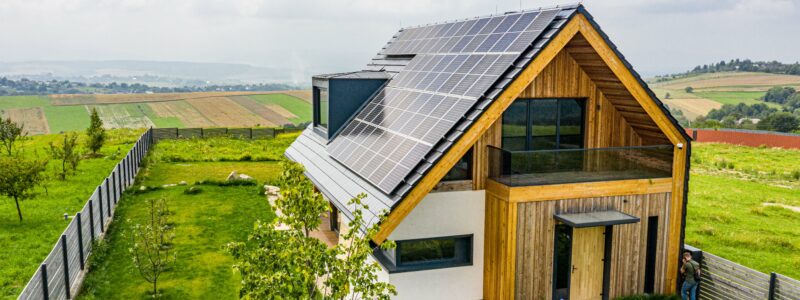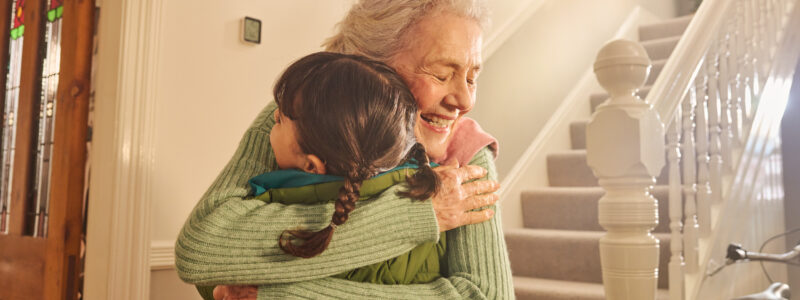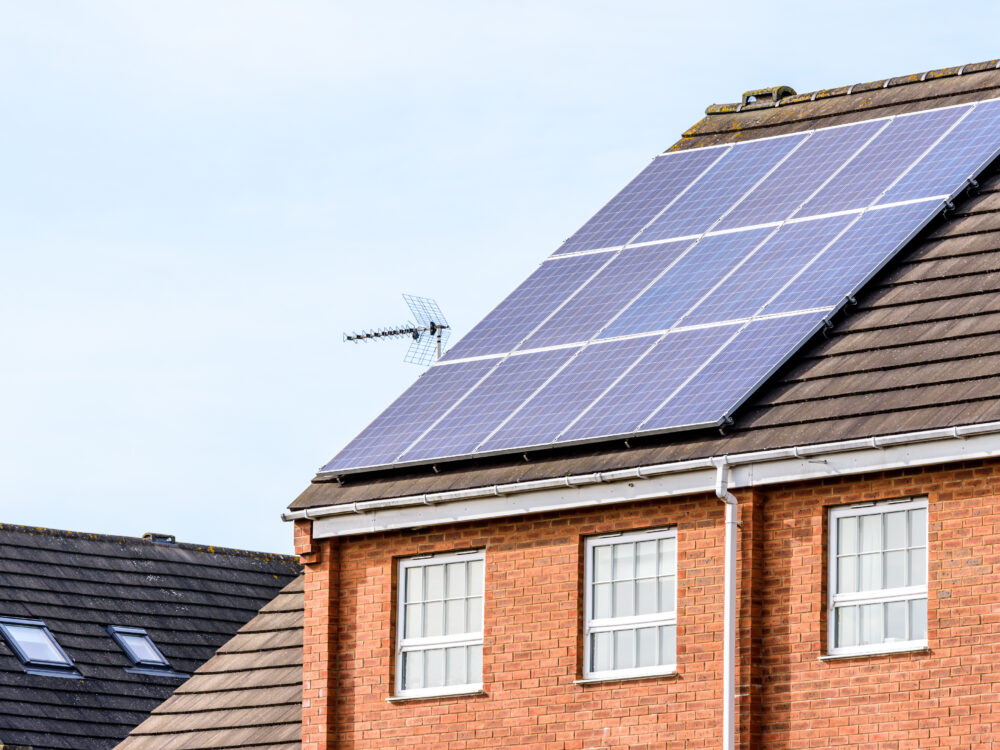There are several government schemes and green finance options that can contribute to the costs of installing solar panels.
As well as cutting energy bills, solar panels will cut your carbon emissions, helping create a home that is smarter, greener, and more energy efficient.
What are solar panels

Solar panels are roof-mounted systems that capture the sun’s energy, converting it into electricity for your home. More people are investing in them than ever – with over 1.4 million installations in homes across the UK.
They allow you to sell surplus energy to the grid – or store it in a battery to use later. Solar panels are also particularly cost-effective in homes that use lots of electricity. That means that if keep your home warm with a heat pump, you’ll get extra bill savings by being able to use more of the electricity you’ve generated.
To find out more about solar panels and other energy efficiency measures that might be suitable for your home, take the Government’s Home Energy Assessment.
Energy Saving Trust also has useful information about solar panels.
The benefits

The benefits of solar panel include:
- cutting your carbon emissions by using a clean, renewable energy source for electricity
- selling extra energy meaning you can get paid to export energy you don’t use to the grid*
- boosting your home’s EPC rating, a higher rating can potentially add value to your property
- creating a smarter, more self-sufficient home by allowing you to control more of your energy use with timers, tariffs, and apps
- boosting your other energy efficiency measures like heat pumps. You’ll get extra bill and carbon savings by being able to use more of the electricity you’ve generated
Financial help

You may be able to get financial support for solar panels through government schemes. You can check eligibility through your energy supplier, local authority, or social housing provider. Alternatively, it may be possible to access green finance if you speak to your bank.
Energy Company Obligation (ECO4) requires energy suppliers to offer efficiency improvements to eligible low-income and vulnerable households across England, Wales and Scotland. If your property is already heated via a heat pump or electric heating, or you are recommended these measures as part of your ECO4 upgrade, you may be able to get solar panels installed under this scheme. You can visit Ofgem’s website to find out more about the scheme, or contact your energy supplier directly to check if your eligible.
Warm Homes: Social Housing Fund (formerly the Social Housing Decarbonisation Fund) will provide funding for social housing landlords in England to support the installation of efficiency measures including solar panels. Wave 3 of the scheme is expected to be delivered from Spring 2025. Tenants can contact their social housing provider or visit GOV.UK for more information.
Warm Homes: Local Grant will fund eligible local authorities to deliver energy performance upgrades for low-income households living in privately owned homes. This scheme is expected to be delivered from Spring 2025. Visit GOV.UK for more information
You can also find out more about other support available in Scotland, Wales, and Northern Ireland.
Are solar panels right for me

Solar panels work particularly well on roof areas that face south and are not shaded by trees or other buildings. East or west facing systems also work, and some solar systems can use ‘optimisers’ to reduce the impact of shading.
You won’t generally require planning permission to install solar panels, but you should still consult your local planning office.
Your solar panel system must be registered with your Distribution Network Operator (DNO) and your installer will normally do this for you. If you live in Northern Ireland your installer should register your system with Northern Ireland Electricity (NIE) Networks.
*In England, Scotland and Wales suppliers offer different Smart Export Guarantee (SEG) tariffs. If you live in Northern Ireland, you can speak to your energy supplier to see if they offer an export tariff
